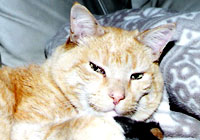Messages that are hidden within a client’s circumstances come to the surface in a session similarly to the way in which hidden meaning bubbles to the surface in a movie. If you haven’t seen The River Why yet, WARNING, this could be a spoiler.
"You heading home? Thought you might be a girl.”
“As we walked up river I felt like we were on a primordial journey to some forgotten ancient home. The fisherman in me was being unmade. With so light a line there could be no question of ever bringing this great fish to bay. So there would be no betrayal, no struggle, no sacrifice, no debt. There's only a chinook leading an undone fisherman deeper into the night." ~ The River Why
In The River Why an enraged Gus leaves his family of origin—where he is being strung along by his self-absorbed father—for a solitary life of fly-fishing. Little does he know that in his solitude he will be confronted with everything he is running away from.
In this scene Eddy, the girl Gus is falling in love with, asks for the lightest leader he has which will make reeling in the large chinook salmon in this area impossible. She casts, gets a bite and hands it off for Gus to figure out. Her last words before leaving are, “Play the chinook.” Gus does as he’s told and goes for the ride—experiencing what it is like to be a fish that just got hooked. He didn't know the purpose of this journey until he was deep into it, but he ventured anyway. Rather than resist the call he heeded it.
“With so light a line there could be no question of ever bringing this big fish to bay. So there would be no betrayal, no struggle, no sacrifice, no debt. There's only a chinook leading one undone fisherman deeper into the night.”
Because it was a fish that was stringing him along, he didn’t cast any expectations or judgments that he might have projected onto a situation between humans.
“As we walked up river I felt like we were on a primordial journey to some forgotten ancient home.”
In being taken to the fish's home he was also being taken to his family’s home—to revisit the business he had left unfinished when he fled.
Gus leaves his family to become a "perpetrator" of his own making—a fisherman. He becomes his own version of what he hated about his father, but he needed this perspective in order to come to a place of peace with his childhood. He needed to experience the difference between baiting and enjoying in order to experience love and understand life. He learned the difference between the powerlessness that drives one to bait another for use in feeding his or her wounded self-esteem and the power that allows a victim the courage to let his perpetrator off the hook. This knowing that comes from witnessing ourselves on both ends of the line enables a reverence to relationships that could not otherwise have been experienced.
Gus was unaware that he had become his own version of the perpetrator that he loathed until he found himself on the “victim” end of his own line. Coming to know our perpetrator's journey through our own experience is often just what we need in order to make peace with our own history—hence his acknowledgement, “The fisherman in me was being unmade.”
Finding ourselves on the victim end of something we have been perpetrator to gives our circumstances a whole new depth, breadth and dimension that we could not otherwise have known. Gus was used to feed his father’s low self-esteem rather than enjoyed for who he was and initially had cast these same motives onto his fishing. From the other end of his line he saw the fish as a sentient being rather than as an object he had tricked into catching—hence his comment to the fish, “You heading home? Thought you might be a girl.”
Hooking is what causes those we love to flee. Gus broke his father’s hold on him when he fled. Breaking the line frees us, but true healing comes from experiencing both ends of the line with emotional maturity.
Clients are often in some form of power struggle when they come to see me—either the fish or the fisherman. All they can see initially is their current victim status colored by all the other times in their past history that they have felt victimized. I call it a rich place because it is rich with opportunities for learning, healing, growth and forgiveness.
Their struggle is in their resistance to being dragged rather than experiencing it as being taken on a primordial journey. Once they reverse direction in this way meditatively, they stop struggling and move into the awe and wonder of where they are being taken and of what they might learn about this other person but most importantly what they will learn about themselves, about love and about life.
“What you resist not only persists, but will grow in size.” ~Carl Gustav Jung
- Can you think of a time when you have been the fisherman?
- Can you think of a time when you have been the chinook?
Friends in this Love,
Dr. Trish














